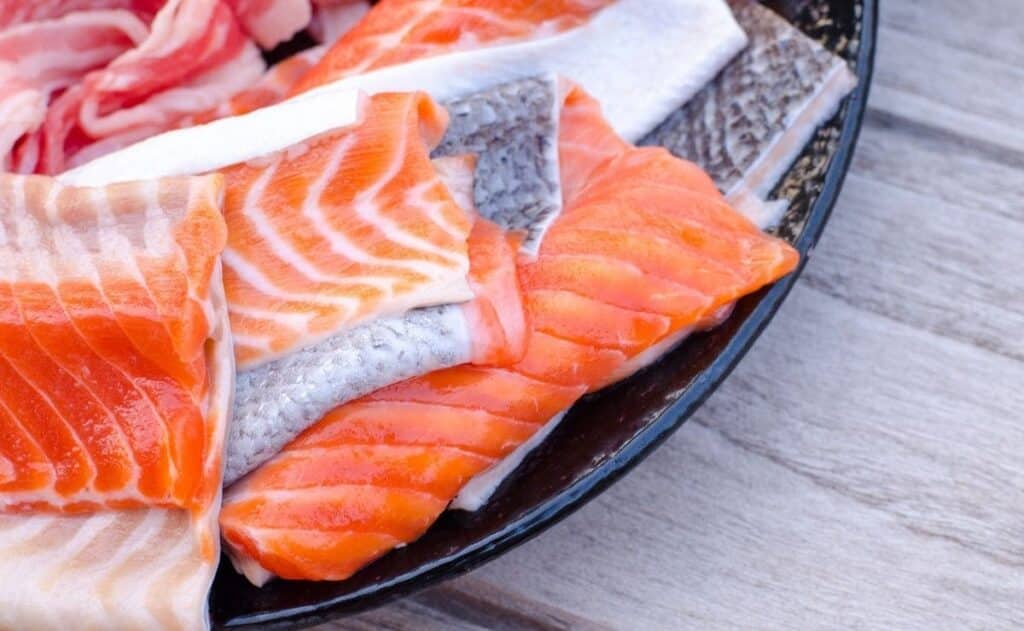This fish is a complete nutritional package. Salmon skin is edible and just as nutritious as fish flesh. In fact, salmon skin is richer in omega-3 fatty acids than fish flesh. It also contains a good amount of phosphorus and potassium.
Salmon flesh is lacking in vitamin D. But the skin of salmon, and especially the bones, are packed with vitamin D. Therefore, consuming salmon skin aids calcium absorption, which promotes calcium absorption.
Salmon skin has no side effects. Eating salmon skin only increases the supply of omega-3 fatty acids from the fish. The more omega-3 fatty acids added to our diet, the better it is for our health. This is because it increases the body’s anti-inflammatory capacity and improves brain health by repairing damaged brain cells.
However, it is advisable to consume the skin of wild salmon instead of farmed salmon. This is because the skin of farmed salmon may be contaminated with pollutants such as polychlorinated biphenyls (PCBs), pesticides, dioxins and mercury. A study conducted by Indiana University found that farmed salmon has a higher concentration of contaminants than wild salmon. Another important thing to keep in mind about salmon skin is that the cooking process does not affect its nutritional value. So you can eat it grilled, broiled, baked or otherwise, salmon skin is delicious and healthy either way.
Is salmon fattening?
Contrary to popular belief, salmon is not fattening. In fact, salmon helps you lose weight. Health experts recommend including a good amount of vegetables, lean proteins such as fish and chicken, and fruits in a weight loss diet plan. Salmon contains a good amount of lean protein that helps you lose weight.
This is because protein keeps you fuller longer and keeps your blood sugar levels balanced. As a result, it keeps you satisfied, thus reducing your food intake throughout the day. You can safely eat two servings of salmon in a week to get the necessary amount of nutrients.
According to studies published by the International Journal of Obesity and the American Journal of Clinical Nutrition (May 2007), a fish-based (lean protein) diet with regular exercise leads to faster and better weight loss results than simply working out at the gym. In addition, salmon is low in calories. A 198-gram serving of salmon provides 14% of the Daily Value (DV) of calories. A three-ounce serving of coho or sockeye salmon has only 118 and 144 calories, respectively.
